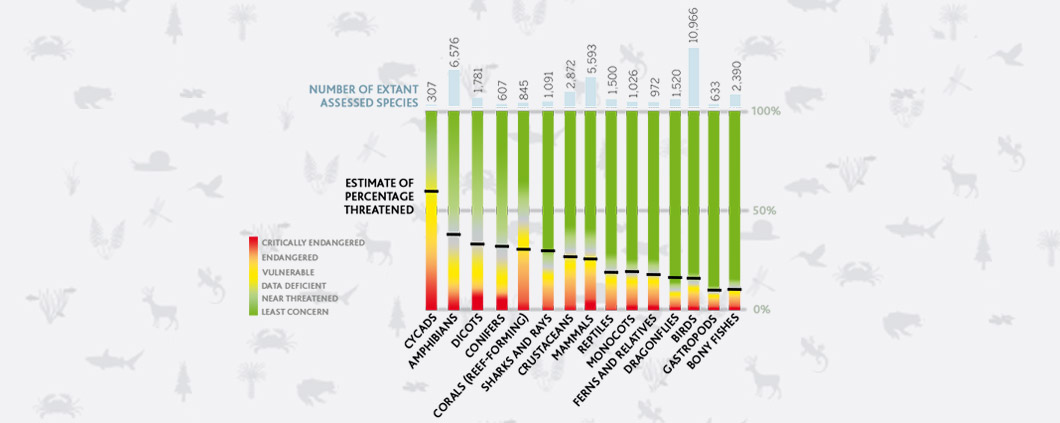A devastating new report has warned of the difficulties the planet is facing due to the indiscriminate actions of human beings. Humanity is the problem, it concludes, but we can still be the solution.
The Intergovernmental Science-Policy Platform on Biodiversity and Ecosystem Services (IPBES), an independent body supported by the UN, presented its latest report in Paris without holding back: more than one million species are in imminent danger of extinction. The degradation that nature has suffered in recent years is irrefutable and places the achievement of the Sustainable Development Goals (SDGs) in doubt, too, including their aims of reducing poverty, economic growth and the stability of an endless number of social and environmental parameters.
Although a lot of research has been published on the worsening state of the Earth and its resources and ecosystems in recent years, the IPBES report about biodiversity appears to be more than just another study. It is one of the most extensive reports compiled at the international level, evaluating the changes recorded over the past 50 years and gathering the work of 145 experts from 50 countries and the collaboration of yet another 310 specialists. Here are some of the conclusions about the loss of biodiversity.
Startling statistics
More distressing numbers. The IPBES report has come up with data on species in danger and ecosystems on the verge of collapse - and they couldn’t be more alarming. Around 8 million animal and plant species currently exist on the planet. Of these, one million are in danger of total extinction, a situation that has become steadily worse over the past 40 years. The climate ultimatum threatens more than 40% of amphibious species, a third of sea mammals and many more living off coral reefs. As for insects, the researchers believe as many as 10% could be in peril.
The reality is not just that it affects all these species, but it also threatens the very survival of our own human species, as well as our progress and stability, since we need biodiversity to exist ourselves, as can be seen from the case of bees. In other words, we cannot separate environmental objectives from the overall SDGs of the United Nations. According to the report, harm to species and ecosystems will undermine 80% of progress toward the SDGs foreseen by 2030 Agenda.
In fact, political efforts to protect nature and environment have fallen considerably. By way of example, in 2010, at a meeting of the Convention on Biological Diversity in Aichi, Japan, the delegates focused on a series of biodiversity conservation objectives for 2020 and, according to the new report, progress has been made on only four of the 20 objectives they came up with.

Humans on trial
A further conclusion from the report points out how humans are the main cause of the loss of biodiversity problems the planet is facing. Five elements in particular are driving environmental degradation and in all of them humans are the common denominator: the actions of human beings affecting the sea and land, altering their ecosystems, the plunder of resources from the sea, emission of greenhouse gases causing climate change, pollution and the introduction of foreign invasive species in ecosystems where they do not belong.
A change in mindset: local and less money-obsessed
The solution to this environment degradation is in the hands of those who cause it, human beings. But to achieve this, it needs not only specific actions but also a real change in mindset and transformation in the way we develop. Historically, living well has meant producing more and consuming more.
According to the IPBES report and its researchers, the solution to the loss of biodiversity lies in modifying our relationship with nature and beginning to see its value beyond money, refraining from commercializing the planet and treating it as an asset.
It is time for nations to change their wealth indicators, incorporating human and natural capital in financial indicators. A radical change in the economic paradigm that restores nature to the center of our concerns.
Another conclusion from the report points to local management of ecosystems as one of the keys to lessening the impact on nature at the global level. Studies show that those places cared for by indigenous communities maintain their biodiversity in the best condition. Local plants and seeds also adapt better to climate change and global warming variations.
We need urgent actions globally and locally which involve institutions and each human being who lives on the planet to stop the loss of biodiversity.